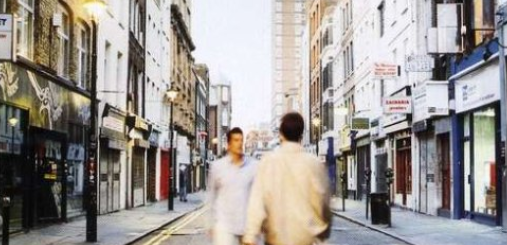Sunday Morning Call by Oasis Lyrics Meaning – Unveiling the Anthem of Heartache and Hope
Lyrics
You hear your head-a-banging on the door
Slip your shoes on and then out you crawl
Into a day that couldn’t give you more
But what for?
And in your head do you feel
What you’re not supposed to feel
And you take what you want
But you don’t get it for free
You need more time
‘Cause your thoughts and words won’t last forever more
And I’m not sure if it’ll ever work out right
But it’s OK
It’s all right
When you’re lonely and you start to hear
The little voices in your head at night
You will only sniff away the tears
So you can dance until the morning light
At what price?
And in your head do you feel
What you’re not supposed to feel
And you take what you want
But you won’t get it for free
You need more time
‘Cause your thoughts and words won’t last forever more
And I’m not sure if it’ll ever work out right
It’s OK
It’s all right
And in your head do you feel
What you’re not supposed to feel
And you take what you want
But you won’t get hope for free
You need more time
Because your thoughts and words won’t last forever more
And I’m not sure if it’ll ever, ever, ever work out right
If it’ll ever, ever, ever work out right
Will it ever, ever, ever work out right?
Among the rich discography of Oasis, ‘Sunday Morning Call’ stands out as a conundrum wrapped in melancholy. It’s a song that threads the fine line between despair and redemption, carrying the heavy chords of self-reflection. As listeners, we’re drawn into a narrative that is at once personal and universal, intimate and detached, a dichotomy that is classic Oasis.
The song captures the notion of those bittersweet moments between waking and rising when one grapples with the remnants of dreams and the realities of daylight. The lyrics paint a vivid picture of internal struggles, showcasing frontman Noel Gallagher’s deft hand at sculpting emotional landscapes out of everyday scenarios. But what deeper messages lie beneath these verses? Let’s dive into the tapestry of pain and promise that ‘Sunday Morning Call’ presents.
Awakening to Reality: The Agony of Consciousness
The track opens with a vivid image—one that resonates with anyone who’s ever felt the heaviness of the morning after. The banging on the door is not just a literal action but also a metaphor for the jarring return to consciousness, the demands of life that cannot be ignored. The ‘Sunday Morning Call’ is not a friendly wake-up; it’s a rude awakening to the same merciless world that was there the night before.
This awakening is more than just getting out of bed; it’s a reminder of the weariness that life can sometimes bring, the grinding routine that offers little respite. The character in the song seems to know that the day ahead ‘couldn’t give you more,’ a realization that could be as liberating as it is oppressive. But the question ‘but what for?’ echoes the search for meaning in the mundanity—does any of it matter?
Yearning for the Forbidden: The Human Condition Revealed
In a poignant turn, ‘Sunday Morning Call’ speaks to the dissonance between societal expectations and personal desires. There’s a raw honesty in confessing to feelings you’re ‘not supposed to feel,’ a rebellion against the notion that one’s emotions need to fit within prescribed norms. Gallagher’s lyrics are an invitation to acknowledge our secret yearnings, perhaps even to act on them, although the consequences may not be forgiving.
The idea of taking what one desires reflects a deep human instinct to chase fulfillment. The caveat that you ‘don’t get it for free’ serves as a sobering reminder that all pursuits come at a cost, be it personal sacrifice or social retribution. There’s a subtle critique here, too, of the commodification of happiness and how the promise of free will is often tethered to a price tag.
The Ephemeral Nature of Thoughts and Words
Delving deeper into the labyrinth of ‘Sunday Morning Call,’ one cannot overlook the existential reflection on time—our ‘thoughts and words won’t last forever more.’ Oasis presents a stark reminder of our fleeting existence, urging a confrontation with the temporary nature of our inner and outer dialogues. The ‘more time’ we seek is an illusion as we cannot escape the eventual silence that follows all sound.
This transient theme resonates deeply in an age of instant communication and relentless noise. Gallagher’s meditation on the impermanence of our expressions is a call to weigh our words and ideas with the gravity they deserve, to carve meaning before they evaporate into the ether of yesterday.
The Duality of Desolation and Celebration
The potent lines ‘You will only sniff away the tears / So you can dance until the morning light’ deliver a powerful contrast between sorrow and joy. Oasis captures the duality of human coping mechanisms—the ability to suppress pain long enough to find solace in temporary escapes. There’s a resilience there, but also a lingering question: ‘At what price?’ Are these moments of escapism healing or simply a plaster over a wound that needs deeper attention?
This oscillation between confronting pain and seeking distraction is a dance as old as time. It’s the Sunday morning resolve to push through a hangover, the existential headache of life, finding reprieve in the rhythm of existence. Yet the cost of this cycle is not measured in currency, but in the quiet toll it takes on the soul.
A Quest for Hope Amidst Uncertainty
‘Sunday Morning Call’ doesn’t just expose the fractures in our internal worlds; it extends a thread of hope. Though the future of our ‘thoughts and words’ is uncertain, there is comfort in the refrain ‘It’s OK, it’s all right.’ Despite not knowing if things will ‘ever work out right,’ the possibility remains, keeping the door ajar for hope to enter, signifying that despair is not the end of our narrative.
In these words lies an invitation to embrace life’s ambiguity, to find solace in the not knowing, as it gives room for anything to happen. Gallagher suggests that the tenuous balance of hope and fear is not an anomaly but a fundamental part of the human experience—one that keeps us moving, searching, and ultimately, living.








